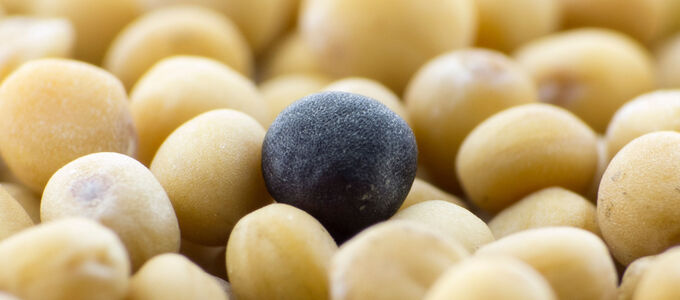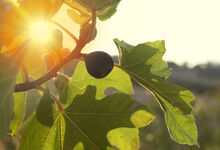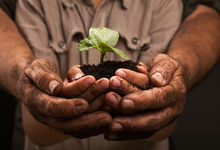A success story with a snag
The kingdom of God starts small and insignificant, but ends up to be magnificent and extensive. The twin parables of the mustard seed and the leaven are a source of encouragement, but they also harbour provocations—at least for Jesus’ contemporaries.

Matthew, Mark, and Luke have this parable in their repertoire. It all starts with what is supposedly the smallest seed of all: kokkos sinapeos, as it is called in Greek. This is probably black mustard (from its botanical name brassica nigra).
The seed, really, is very tiny: 750 seeds together weigh just a single gram. But there are even smaller seeds. However, scholars are in dispute over which of these were known to the Jews at the time.
And yet the listeners immediately understood what Jesus was trying to tell them. Because “mustard seed” was considered the proverbial unit to illustrate an infinitesimally small amount of something. For example, purity laws stipulated that in the event of an impurity, say a spot not bigger than a mustard seed, action had to be taken.
Less and more than a tree
In the end, the seed “becomes a tree, so that the birds of the air come and nest in its branches” we can read in Matthew. Sure, the seedlings don’t stay small. They can grow into a shrub of two or three metres, sometimes even more.
But to call this plant a tree is still a little far-fetched. This is because the mustard shrub is an annual and grows and dies in a single growing season. It is unlikely that a mustard plant will attract nesting birds. At best, the shrub can provide shade or allow birds to rest in it.
And yet the listeners at the time of Jesus understood exactly what Jesus was alluding to: images from the prophets Daniel and Ezekiel, who both described end-time events. Here, the tree with its fruit and nests symbolises powerful kingdoms whose rulers protect and provide for a multitude of peoples.
Shrubs instead of exotic wood
The problem with this story is that Daniel and Ezekiel both have the majestic cedar in mind. Its trunk can grow as thick as the average mustard shrub is tall. And with a height of forty metres, this noble tree is truly an exceptional specimen.
So what is the point of using such a mini shrub in the parable in the first place? There is also a message in this: the kingdom of heaven will come, but in a completely different way than expected.
The good with the bad
The listeners were probably even more confused by the parable of the leaven, which immediately follows the parable of the mustard seed in Matthew and Luke. A woman takes some sourdough—obviously a normal household quantity—and mixes it with about three sata of flour. This was the equivalent of just under 40 litres in liquid capacity or about 25 kilograms in a dry measure. The bread baked from this amount would have been enough to feed around a hundred people. This was to show how powerfully the kingdom of God can penetrate everything.
The problem for the listeners here is that leaven is synonymous with sin or evil, with something that is impure, harmful, and alienating from God—in the New Testament too. Paul thus contrasts the “leaven of malice and wickedness” with the “unleavened bread of sincerity and truth”. Jesus’ message is so powerful that it transforms the negative into the positive: the kingdom of God will come and turn everything upside down.
Photo: World of Inspiration - stock.adobe.com







